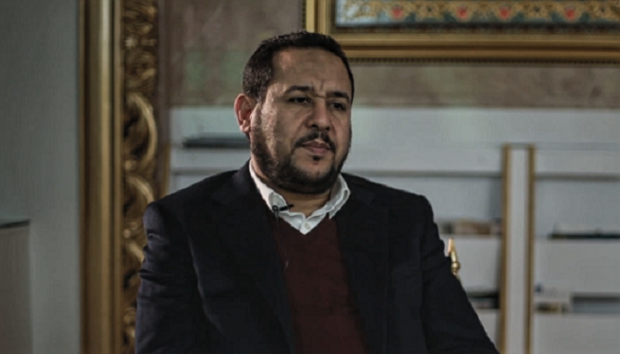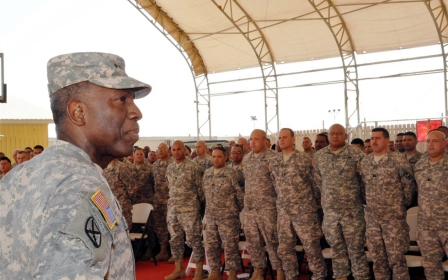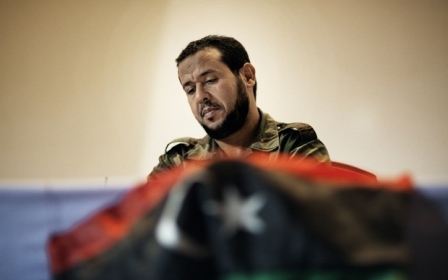Top UK prosecutor calls for evidence to be kept secret in Libyan rendition case

The UK's most senior prosecutor has asked the Foreign and Commonwealth office (FCO) to apply to withhold evidence from two victims of the country's rendition programme.
Abdul-Hakim Belhaj and his wife Fatima Boudchar, who were both kidnapped and rendered to Libya where they were tortured in 2004, are currently challenging a decision by Director of Public Prosecutions Alison Saunders not to charge UK officials over the incident.
However, according to the human rights organisations Reprieve, the DPP has called on the FCO to seek "closed material procedures" in the case, keeping key evidence secret from the victims.
Reprieve said Foreign Office lawyers indicated in court today that the FCO would be seeking meetings about the case with the DPP.
It has taken five years for the case to get to the Supreme Court in the face of a stonewall campaign by the British establishment - a tactic Cori Crider, a lawyer for Belhaj family from Reprieve, said had proved only that the state could not admit wrongdoing.
“When top MI6 officials and a former foreign secretary are investigated for rendition and torture, you’d think prosecutors would sup with a very long spoon," she said in a statement on Thursday.
"How are victims meant to have confidence in open, British justice when prosecutors ask the very department involved in the case to help them make an application for a secret trial?”
The case came to light after the fall of Tripoli in 2011, when faxes from Mark Allen, MI6’s then counter-terrorism director, describing the rendition flights were found in the office of Moussa Koussa, Libya’s head of intelligence.
Crider told Middle East Eye: "The documents show - pretty much in black and white - a joint CIA/MI6/Libyan effort to abduct him and his wife and send them back to Libya. Because of the Tripoli files we don't just know from our client's testimony what happened, we know from [the government's] own contemporaneous documentation.
"We have a specificity of evidence that you wouldn't usually get after years and years of litigation - which is why, quite frankly, the UK has been so desperate to avoid it going to trial."
The British government has argued that it cannot allow the case to come to open court because it could reveal details that could damage relations with the US under the so-called "foreign act of state doctrine," whereby foreign states and their agents are granted immunity from actions by British courts.
"But there is no good reason, no sensible reason - it is just sheer bloody mindedness at this point and an allergy to admitting wrongdoing on the part of the security services," said Crider.
"I have always believed ours was not just the right argument, but far and away, and the government's argument could charitably be described as legally efficacious - and I think they know it. There has been no downside to them in waging a war of attrition.
A former militant leader with the anti-Gaddafi Libyan Islamic Fighting Group (LIFG), Belhaj was subsequently imprisoned for six years during which time he says he was routinely tortured and mistreated.
Belhaj's abduction came at a time when Britain’s government under prime minister Tony Blair was wooing Gaddafi's sanctions-crippled Libya as a potential ally in the so-called "War on Terror" launched by the US against al-Qaeda and allied Islamist militants, as well as eyeing lucrative oil contracts for British firms.
The US deemed the anti-Gaddafi LIFG, which was formed in 1990 by Islamist Libyans who had fought in Afghanistan against Soviet forces in the 1980s, to be a terrorist group allied with al-Qaeda.
But Belhaj denied that any links between the group and al-Qaeda existed and said he believed that his rendition to Libya was part of a covert deal between Blair and Gaddafi, who was ousted and killed in a popular uprising in 2011.
New MEE newsletter: Jerusalem Dispatch
Sign up to get the latest insights and analysis on Israel-Palestine, alongside Turkey Unpacked and other MEE newsletters
Middle East Eye delivers independent and unrivalled coverage and analysis of the Middle East, North Africa and beyond. To learn more about republishing this content and the associated fees, please fill out this form. More about MEE can be found here.




